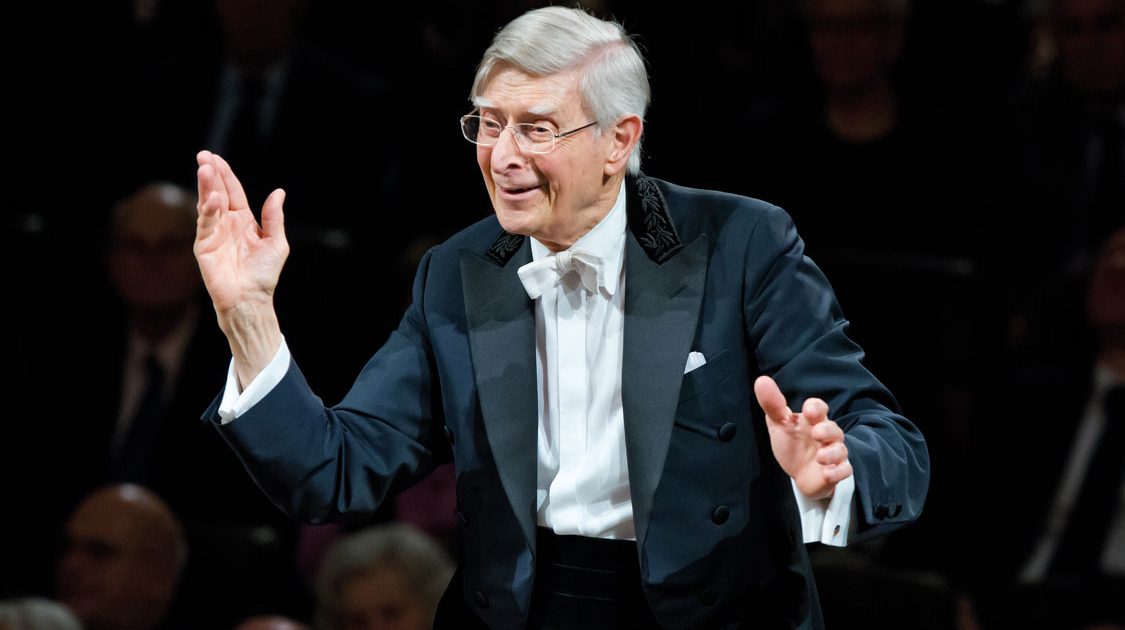Throughout, the Leipzig orchestra play magnificently and, to my ears, with far more depth and character than they did for Chailly in his Gramophone Award-winning set.
“Brahms: Symphony No. 1 & No. 2,” performed by Herbert Blomstedt, Gewandhausorchester Leipzig, was reviewed by Gramophone! Read the full review below:
It seems that at 92, with recordings of all of the Schubert and Sibelius symphonies and two cycles each of the Beethoven and Nielsen symphonies under his belt, Herbert Blomstedt is at last going to set down his first survey of the four Brahms symphonies. For a conductor ‘as honest as the day is long’ (to borrow a phrase from my colleague Rob Cowan), Brahms would appear to be a natural fit. Yet, in fact, Blomstedt’s interpretation of the First Symphony is oddly stylised, with all the sharp edges polished away so that, for example, the thwack of the timpani in the opening Un poco sostenuto is cushioned and comfortable. There are some strikingly beautiful moments – the profoundly plush sound of the strings at 3’58” in the slow movement, for instance, that makes my entire body vibrate in sympathy, or the dizzying sense of magical transformation at 2’33” in the introduction to the finale when the music finally melts into C major. For all its wondrous lyrical intensity, however, there’s rarely any hint of struggle or discomfiture. In the bucolic third movement, I had the strange feeling I was standing before a luxuriant painting of a pastoral scene rather than experiencing it first-hand.
What a surprise, then, to find that Blomstedt’s performance of the Second Symphony unfolds with such naturalness and ease. Is it that this work plays more to his strengths? Perhaps. The textures are lighter, certainly, but there’s also more textural and emotional variety. Listen to how delicately the orchestra dances through the staccato passage at 1’49” in the first movement, or to how much drama he wrenches from the Adagio non troppo without ever interrupting the unbroken flow of musical ideas. There’s a subtle suggestion of breathlessness in the Allegretto grazioso and the finale is held taut from beginning to end. The two overtures have a similar sense of inexorability, and both generate considerable electricity.
Throughout, the Leipzig orchestra play magnificently and, to my ears, with far more depth and character than they did for Chailly in his Gramophone Award-winning set (Decca, 10/13) – even in the First Symphony. Pentatone’s richly upholstered, exquisitely balanced engineering surely deserves at least partial credit. I just hope the forthcoming instalments continue this cycle’s steep upward trajectory.
Andrew Farach-Colton


